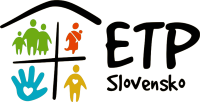Humanitarian and Social Programme
During World War II, certain large groups of people within Europe suffered significantly. Many of them did not survive such torment, and those who did suffer from this trauma even today. In some cases the reason for such cruel treatment was simply their ethnic background. A specific form of collective guilt also affected the Roma population.
In recent years IOM – the International Organization for Migration – has provided help and assistance for those Roma people who were either directly or indirectly affected by Nazi racism and persecution in a number of European countries.
ETP Slovakia was approached by IOM to deliver a project for the benefit of elderly Roma people who suffered during World War the Second and, since October 2003, it has implemented humanitarian and social programmes in almost all districts of Eastern Slovakia.
Elderly Roma people in need born before May 9th, 1945 and who survived the Nazi persecution are the target group. At present more than 6,000 such Romas live within the region, and based on their problems and needs, they can obtain one or more types of humanitarian and social help.
In all the towns and villages where the program has been implemented there are different social communities of Roma, from the upper middle class to the lowest class. However, there isn’t a trace of social solidarity among them – the only solidarity that exists, if any, is within the family. The situation of the poorest segregated Roma thus depends directly on outside assistance and the social networks functioning between the Roma and non-Roma. This is what Humanitarian and Social Program has provided for more than six thousand elderly Roma in fifteen different districts of Eastern Slovakia.
Humanitarian assistance includes food or hygiene packages, winter assistance in the form of wood, coal or warm blankets, legal advice and medical assistance and, in exceptional cases, help can be provided in the form of a special emergency assistance for solving housing or financial problems.
A particular type of assistance is social help which is provided in areas with a high number of elderly Roma people and the Project has, in cooperation with town and village local government, established twelve Social Clubs, which have become centres for leisure, educational activities, and social and legal assistance not only for elderly Roma people, but also for other members of whole communities.
During 2003 and 2004, the Humanitarian and Social Programme, in cooperation with local governments, supported the opening of Clubs in the villages and towns of Holumnica, Levoča, Mníšek nad Hnilcom, Moldava nad Bodvou, Rakúsy, Spišské Podhradie, Spišský štvrtok, Spišský Hrhov, Stará Ľubovňa, štrba, švedlár and Žehra.
Although these Clubs are designed mainly for elderly Roma people, any local inhabitants interested in meeting with others are also welcome. The Clubs, however, are not only places for meetings, they also provide a facility for answering questions, solving problems and offer meaningful ways of spending free time, for example for hobbies, handicraft activities, singing and recreation, etc. Clubs are regularly visited by the social field workers, a doctor, lawyer and other experts who can provide advice on various issues of everyday life.
ETP Slovakia believes the program has been more than just simple help for the beneficiaries. In some cases it has lit a spark of life that had almost been put out by the harsh times they have gone through. And that is what really counts.

